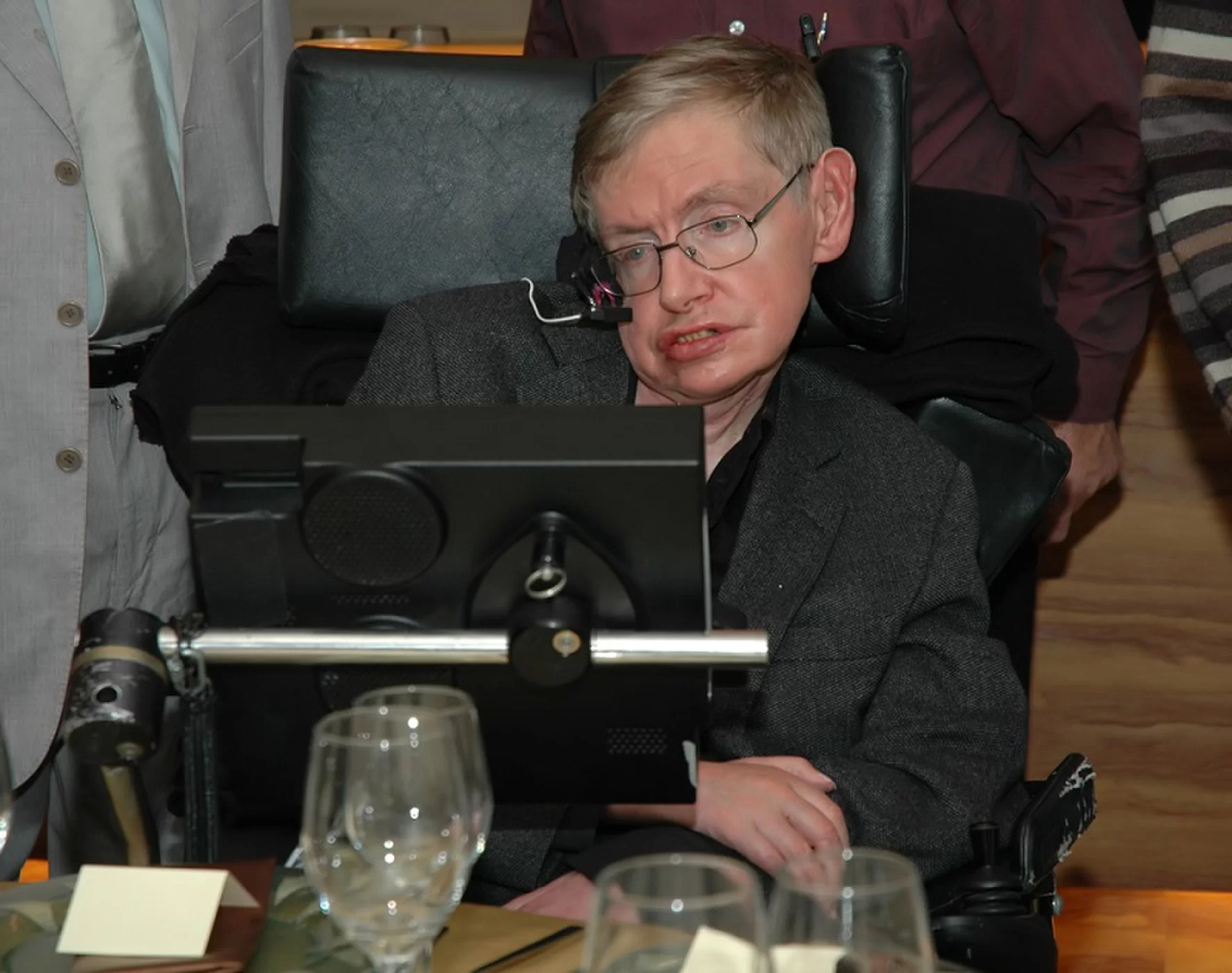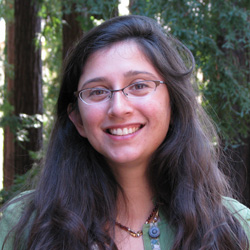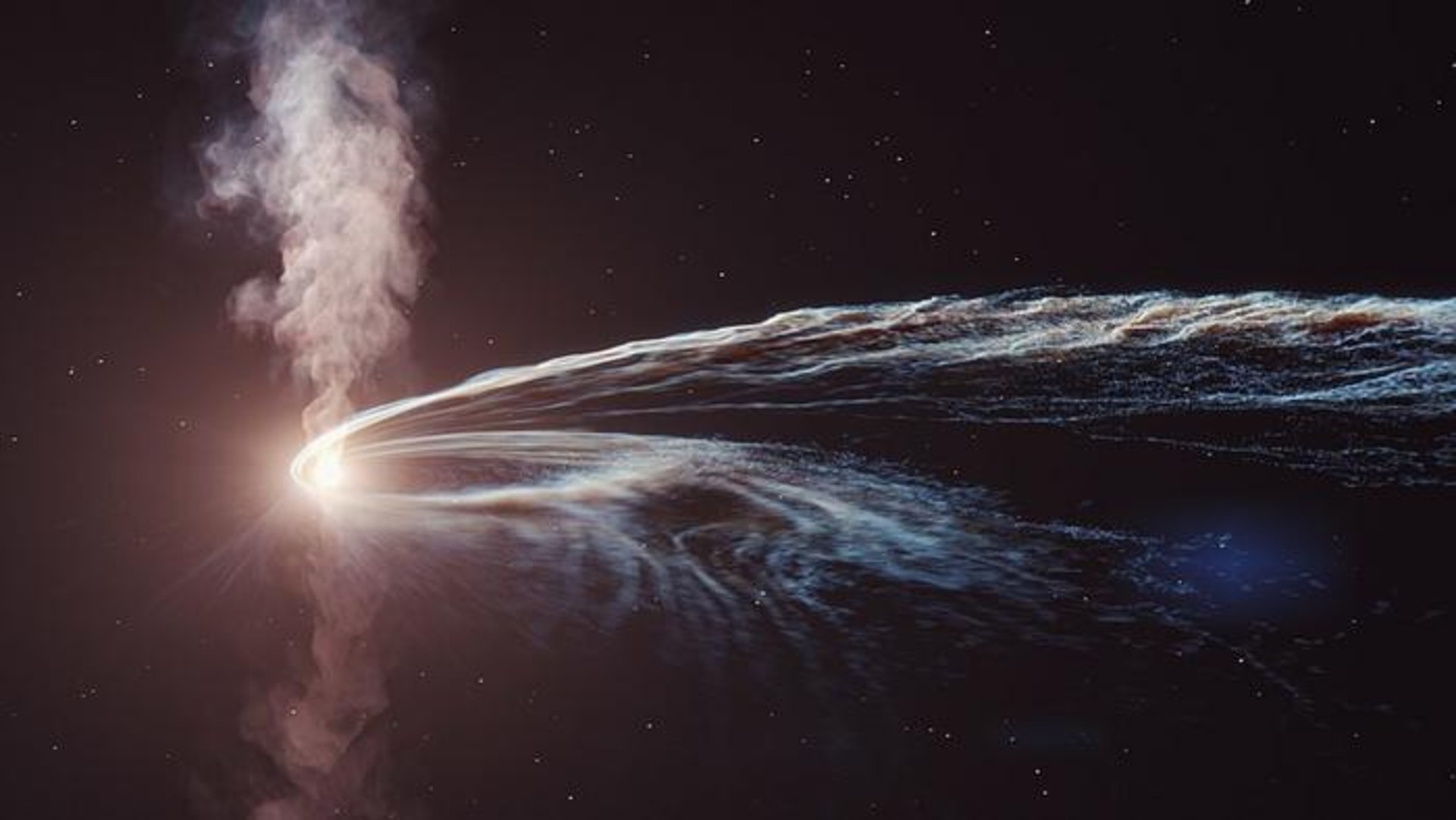
Breaking space news, the latest updates on rocket launches, skywatching events and more!
You are now subscribed
Your newsletter sign-up was successful
Want to add more newsletters?

Delivered daily
Daily Newsletter
Breaking space news, the latest updates on rocket launches, skywatching events and more!

Once a month
Watch This Space
Sign up to our monthly entertainment newsletter to keep up with all our coverage of the latest sci-fi and space movies, tv shows, games and books.

Once a week
Night Sky This Week
Discover this week's must-see night sky events, moon phases, and stunning astrophotos. Sign up for our skywatching newsletter and explore the universe with us!

Twice a month
Strange New Words
Space.com's Sci-Fi Reader's Club. Read a sci-fi short story every month and join a virtual community of fellow science fiction fans!
Stephen Hawking, one of the brightest minds of modern physics, has died at the age of 76 at his home in Cambridge, England, The Guardian reported today (March 14). He was perhaps the best-known physicist in the world, despite having to communicate via a computerized voice that recorded the minute motion of his cheek muscle.
"We are deeply saddened that our beloved father passed away today," Lucy, Robert and Tim Hawking, the children of the physicist, said in a statement announcing his death. "He was a great scientist and an extraordinary man whose work and legacy will live on for many years."
Hawking was a brilliant student of physics at the University of Cambridge when he was diagnosed with the degenerative nerve disease amyotrophic lateral sclerosis (ALS), also known as Lou Gehrig's disease, at the age of 21. ALS affects the neurons that help us move our muscles, so Hawking used a wheelchair for decades and communicated via a computerized "voice." He nevertheless continued working and soon developed a series of groundbreaking theories that would remake the world of physics. In 1966, the cosmologist published his doctoral thesis, which argued that the entire universe began as a singularity.
He then went on to reshape our understanding of black holes. Until Hawking's work, scientists believed absolutely nothing could escape a black hole, meaning that a black hole would grow ever larger. But Hawking posited that quantum mechanics essentially allowed black holes to emit particles — a phenomenon now known as Hawking radiation.
Hawking was also a deeply witty popularizer of some of the most esoteric concepts in physics and cosmology, with books such as "A Brief History of Time" (Bantam Books, 1988). In recent years, he weighed in on everything from the future of humanity, to the risks of artificial intelligence, to the chances of Earth turning into Venus, all while continuing to publish important theoretical work in physics.
Editor's note: This article was updated at 10:14 a.m. to include information about how ALS affects the body.
Originally published on Live Science.
Breaking space news, the latest updates on rocket launches, skywatching events and more!

Tia is the assistant managing editor and was previously a senior writer for Live Science, a Space.com sister site. Her work has appeared in Scientific American, Wired.com and other outlets. She holds a master's degree in bioengineering from the University of Washington, a graduate certificate in science writing from UC Santa Cruz and a bachelor's degree in mechanical engineering from the University of Texas at Austin. Tia was part of a team at the Milwaukee Journal Sentinel that published the Empty Cradles series on preterm births, which won multiple awards, including the 2012 Casey Medal for Meritorious Journalism.

